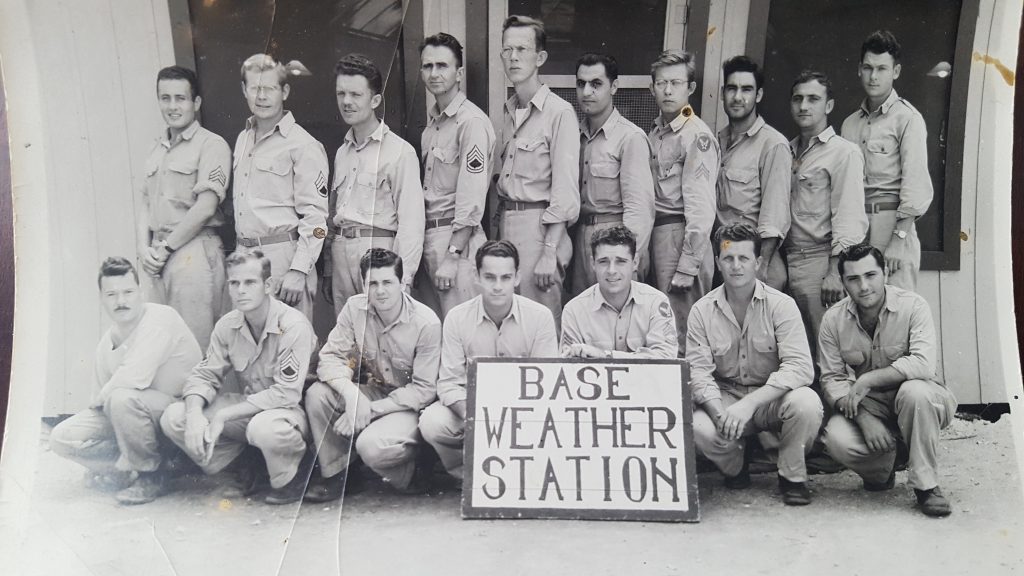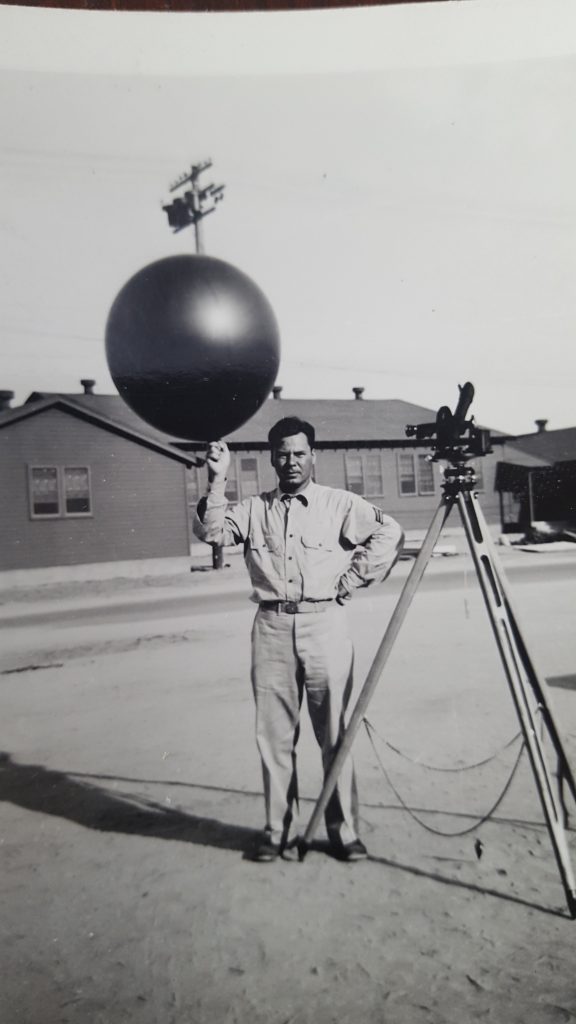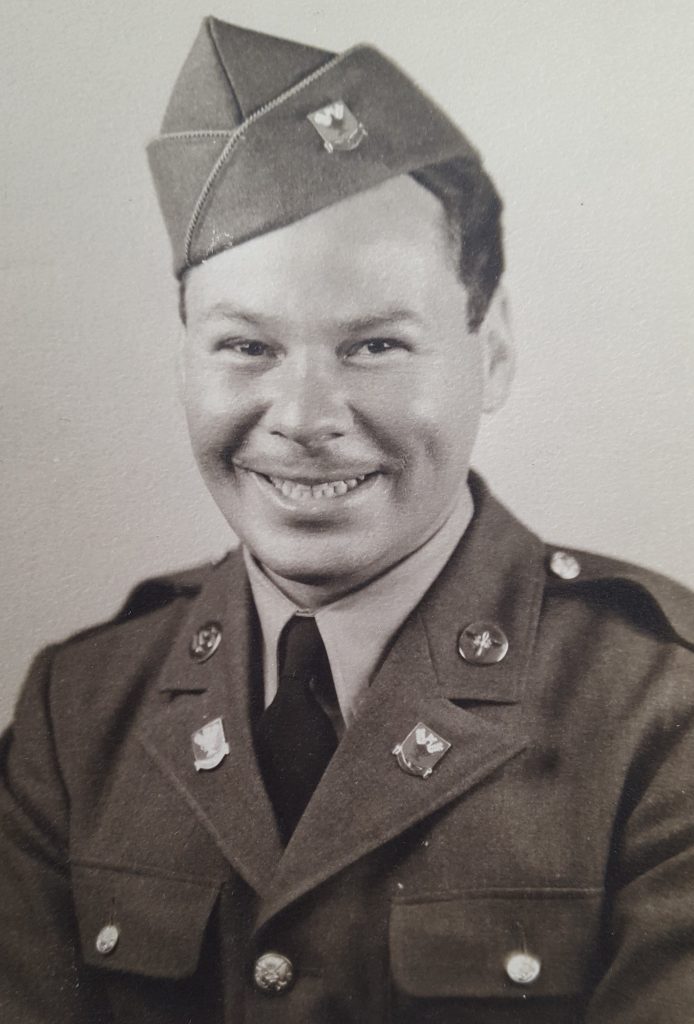I like a good parade as much as the next person.
When I was growing up in Bethel Park, we’d stuff streamers in our handlebars and ride down Dashwood Drive on our bikes on the fourth of July.
Some years we’d build floats and parade down Donegal. In high school we spent weeks folding Kleenex into flowers to decorate floats for the homecoming parade. I like pageantry, and ritual, and ceremony.
But last week, when Fred kept saying, “Write about how my dad was a martian,” I was still digesting the idea that Trump thought it was treasonous for people not to clap for him.
Then the man who lives in the president’s house ordered the military to plan a giant military parade. Because, um, France.
Writing about martians started sounding like a pretty good idea. Bear with me–I’ll have to go back a little to get there.
ABD
In 2001 when Fred’s father died, I was ABD (all but dissertation) in my PhD program and Peter had stopped wearing underwear. We know this because Ann, his wife, told us. We were all mystified, but to know Peter was to know that, somewhere, there was a reason.
By this point, I had realized I wasn’t heading toward a career in academia, so I had turned down my TA contract and taken a job with Robert Half, International.
That July I was working in the IT division matching employers and people seeking technology jobs. In short, I was a headhunter.
In reality, I was looking for a new job for myself. The fourth had come and gone, and I wasn’t really thinking about parades.
The Stroke
When I got the call that Fred’s father had had a stroke at Sandia Casino and was on the way to the hospital, I left work and headed straight there. It was a quick shot down I-40 to Presbyterian, and I arrived before the ambulance.
It was a massive bleed. Peter was conscious when he arrived, but was not expected to live for long.When he asked me what happened and I told him he’d had a stroke, he knew he was dying.
For a long time I thought that what I saw in his eyes in that moment was fear, but I’m not so sure. I think now that he was simply surprised that death would track him down in the keno lounge in the middle of a sunny afternoon.
The 17th Weather Squadron
Death had had plenty of other chances. Fred’s father was a World War II vet. He served as a meteorologist in the 17th Weather Squadron. The 17th went to war on September 18, 1942, and disbanded in February, 1945. For most of that time, the Squadron was based in Noumea, New Caledonia, in the Southwest Pacific.
I know this information from a pile of papers and old photos Fred left out for me this morning when I told him I needed details.

By the time I knew him, Peter wasn’t interested in talking about his experience in the war. When he saw USA bumper stickers or people waving flags, he’d shake his head.
I don’t know if he made it back home to New York in time for the huge victory parade in January, 1946, but he probably wouldn’t have gone if he did.
A Sentence That’s Stuck in My Head
Here’s a sentence that is stuck in my head. “Fascist regimes value nationalism and militarization and frequently build nationalist fervor around a concept of shared racial or ethnic superiority.”
I have a memory I can’t verify: When I lived in Evanston, Illinois in the late 1980s, I drove through Skokie and saw Nazis holding hate signs in the streets.
Anti-semitism as a modern phenomenon became real to me that day, so I know I saw something. But I can’t find any record that confirms my memory.
What I can confirm is that in 1977, a neo-Nazi group went to court to march in Skokie, a town where thousands of holocaust survivors lived. I can also verify that in 1987, one day after the town erected a holocaust memorial, it was defaced.
Perhaps on the day of the dedication I drove through Skokie and saw among the survivors some idiots holding anti-semitic signs. Or maybe I just imagined the people with the signs when I heard what happened to the statue.
I do remember that everyone was outraged. I don’t remember anyone saying that there were good people on both sides.
Living Together
In 1998 we sold our house in the Heights and moved to the Westside. We needed a house where we could live with Fred’s aging parents without driving each other crazy.
Fred used to tour people around our house while it was being built. He’d say things like, “This is the room where Heather can be alone to read,” and “This is the room where Heather can be alone to drink coffee.” I was determined not to lose my privacy when my in-laws moved in.
Maybe that’s why I got along with Peter so well. He didn’t have much use for people. He liked to sit on the couch with Ben, the oldest beagle, watching UFO shows and sharing handfuls of peanuts.
Peter loved dogs, and he liked me. I like to think both of those facts speak volumes about his character.
Another Few Sentences that Are Stuck in My Head
Dana Millbank, at the Washington Post, wrote these lines. “Donald Trump, who had five draft deferments, never had to fight in the jungles of Vietnam.
“But he had a different sort of war record, as he told radio host Howard Stern years ago: He slept with many women without getting STDs. ‘It is my personal Vietnam,’ he said. ‘I feel like a great and very brave soldier.'”
What We Think We Know
Peter didn’t just feel like a soldier, he enlisted, along with thousands of other young men, on December 8, 1941. He joined the Army Air Corps as a member of the 17th Weather Squadron.

Peter was shot down twice. The first time he was fished out of the South Pacific. The second time, his plane hit the ground while limping back to base after an encounter with Japanese fighters.
The burn scars on his legs came from that second time. He could have stayed on base that day. Instead, he took to the sky because a buddy needed a gunner.
That’s what “great and very brave soldiers” do.
How He Felt About Parades
The worst thing we ever did was take my father-in-law to see Saving Private Ryan. The battles came raging back at him on the big screen and rattled him for weeks. He’d make tiny, cryptic comments, but it was hard to draw him into conversation.
He hated all the bumper stickers, chest-thumping, and flag waving that passed for patriotism. He knew the truth: war was bloody and brutal.
It was like that old saying about people who remember the sixties. In Peter’s book, if you had to brag about what you did in the war, you weren’t really there.
About Those Martians
Does anyone else remember the John Denver song, “Late Night Radio”? It’s been playing in my head for the past week. In the final verse, Denver sings, “The Lord is still my shepherd but these preachers got to go. This time of night my interest lies in ufo’s.”
Every night for as long as I knew him, Peter donned a pair of giant headphones and tuned in to Art Bell on Coast to Coast AM. With his head decked out in antennae, Peter looked a bit like a martian.
In the morning he’d give us updates about the continuing government cover-up at Area 51 and the latest UFO sightings.
By this point Peter knew so much about martians that we were convinced he was one. As each new idiosyncrasy appeared, we chalked it up to his green blood.
The way he rigged a doorbell into the steering wheel when the horn broke? We were sure that was an old martian trick.
Oh–and remember Y2K? We were ready. Peter had been saving giant juice jugs for months, surreptitiously filling them with water and stashing them in his bedroom closet for the dogs.
Taps
When the mother ship finally came down, there wasn’t time for a parade.

If you have ever sat with a person while their breath slows and catches, you remember the ice chips, the moist swabs, the nurses. What I remember most is the space between the breaths, how it caught and lengthened through the night and into the next afternoon.
When the space widened into eternity, we followed Peter’s body up I-25 to the National Cemetery in Santa Fe. His grandson read some prayers from a Jewish prayer book, and I looked out over the hills as taps played on the intercom and three volleys of gunshots echoed in the high mountain air.
A uniformed man folded the flag that had draped Peter’s coffin into a neat triangle, and we headed home.
It was a simple ceremony, yet still more, I think, than Peter would have wanted.
Not This Parade
I suspect one day giant tanks will roll through the streets of DC in a garish parade of military power. We won’t be celebrating the end of a war, because wars don’t end anymore. We won’t be throwing a parade to welcome soldiers home, because the soldiers will still be busy fighting wars.
We will, instead, be celebrating one small man’s ego in the guise of honoring the big men and women who give the best they have.
In my fantasy world, someone says “No.” Or maybe everyone shows up to the parade dressed as martians.
Real leaders don’t need columns of tanks to prop up their egos. Real soldiers know that war is bloody and brutal and sad. Real heroes want peace, not parades.

